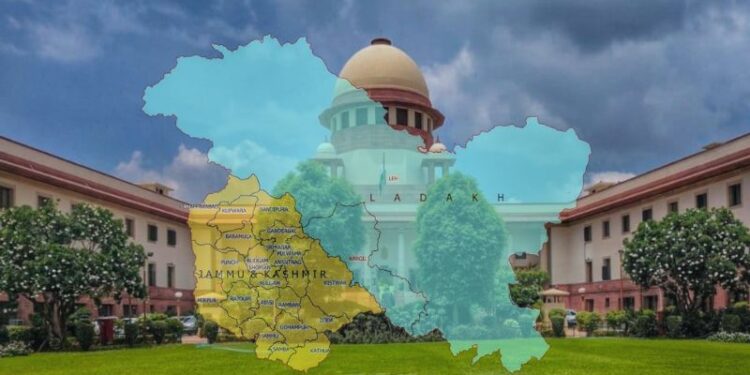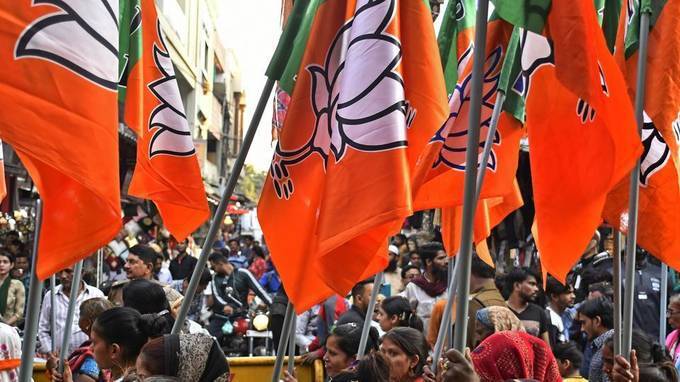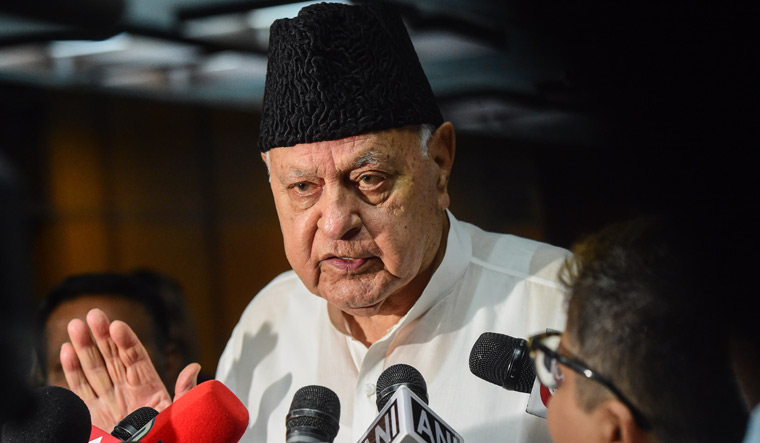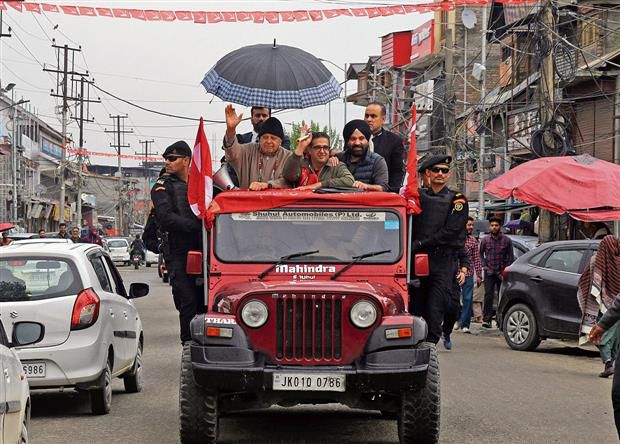A Constitution Bench on July 11 said the Centre’s fresh affidavit claiming that Jammu and Kashmir is witnessing an “unprecedented era of peace, progress and prosperity” following the abrogation of Article 370 on August 4, 2019 has “no bearing on the constitutional challenge” to the repeal of the provision.
The Bench headed by Chief Justice of India D.Y. Chandrachud and four of the senior most judges said it would start hearing the case from August 2.
The Constitution Bench deleted the names of bureaucrat Shah Faesal and activist Shehla Rasheed from the petitioners.
With the deletion of Mr. Faesal, whose name was part of the cause title, from the array of petitioners, the case would now be called ‘In re: Article 370 of the Constitution’.
The court observed that the Home Ministry affidavit, filed on the eve of the Constitution Bench hearing, only sets out the “perspective of the Union Government regarding the post abrogation of Article 370 developments has no bearing on the issues raised in the petitions and shall not hence be relied upon for that purpose”.
“This case concerns a pure constitutional challenge,” Chief Justice Chandrachud observed.
The petitioners, represented by senior advocates like Rajeev Dhavan, Dushyant Dave, Raju Ramachandran, Gopal Sankaranarayanan, C.U. Singh, Nitya Ramakrishnan and advocates Kamini Jaiswal, Vrinda Grover, Prasanna S., said the “legal challenge remains” despite what the Centre’s views about life in the erstwhile State of Jammu and Kashmir after the abrogation.
In its 20-page affidavit, the Centre claimed that post abrogation of Article 370, which deprived Jammu and Kashmir of its special privileges, “life has returned to normalcy in the region after over three decades of turmoil”.
The Ministry has said the “street violence”, which was engineered by terrorists and secessionist networks have become a “thing of the past”.
Organised stone-pelting incidents, linked to the terrorism-separatist agenda, have come down from 1767 in 2018 to zero in 2023, the Centre has said. Bandhs and hartals have also become a distant memory. “Resolute anti-terror actions” have dismantled the “terror eco-system” which has led to a significant drop in terror recruitment from 199 in 2018 to 12 in 2023 till date, the MHA has said.
The government said it has “encouraged policies to mainstream youth” to “wean them away from militancy”. Moreover, the Centre said that work on transit accommodation for the safe return of Kashmiri Pandits to the Valley was in an “advanced stage and is expected to be majorly completed in the next one year”.
The Article 370 case has been pending in the Supreme Court for over two years. The case had not come up after a five-judge Bench refused to refer the petitions to a larger Bench in March 2020.
The petitions have challenged a Presidential Order of August 5, 2019 which blunted Article 370. The Article had accorded special rights and privileges to the people of Jammu and Kashmir since 1954 in accordance with the Instrument of Accession. The special status was bestowed on Jammu and Kashmir by incorporating Article 35A in the Constitution. Article 35A was incorporated by an order of President Rajendra Prasad in 1954 on the advice of the Jawaharlal Nehru Cabinet. The Parliament was not consulted when the President incorporated Article 35A into the Constitution through a Presidential Order issued under Article 370.
Following the abrogation, the Jammu and Kashmir (Reorganisation) Act of 2019 came into force and bifurcated the State of Jammu and Kashmir into two Union Territories of Jammu and Kashmir and Ladakh. In a day, Jammu and Kashmir had lost its full Statehood and became a Union Territory of the Central Government. The move had been preceded by a state of lockdown in the Valley.
The various petitions have challenged the Centre’s “unilateral” move to impose curfew and unravel the unique federal structure of India by dividing Jammu and Kashmir “without taking consent from the people”.
They have questioned the Centre’s sudden move to “unilaterally unravel the unique federal scheme, under cover of President’s Rule, while undermining crucial elements of due process and the rule of law”.
Separate petitions have contended that the August 5 Order and the Jammu and Kashmir Reorganisation Act of 2019 were arbitrary. They have also challenged the proclamation of President’s Rule in the State in December 2018.
The petitions have said what happened to Jammu and Kashmir “goes to the heart of Indian federalism”. Thay argue that the Presidential Order of August 5 substituted the concurrence of the Governor of the State Government to change the very character of a federal unit.
They said the Presidential Order took cover of a temporary situation, meant to hold the field until the return of the elected government, to accomplish a fundamental, permanent and irreversible alteration of the status of the State of Jammu and Kashmir without the concurrence, consultation or recommendation of the people of that State, acting through their elected representatives.
They have argued that it amounted to the overnight abrogation of the democratic rights and freedoms guaranteed to the people of Jammu and Kashmir upon its accession.
The basic purpose of Article 370 was to facilitate the extension of constitutional provisions to the State in an incremental and orderly manner, based upon the needs and requirements, without dismantling the State Constitution.
The August 5 Order, by replacing the recommendation of the ‘Constituent Assembly’ with that of the ‘Legislative Assembly’ in order to alter the terms of Article 370, assumed that the legislative assembly of the State of Jammu and Kashmir had a power that its own Constitution, under Article 147, denied to it. Thus, the August 5 Order was ineffective, the petitions have alleged.
The government has countered that the Presidential Order of August 5 has become ‘fait accompli’.






